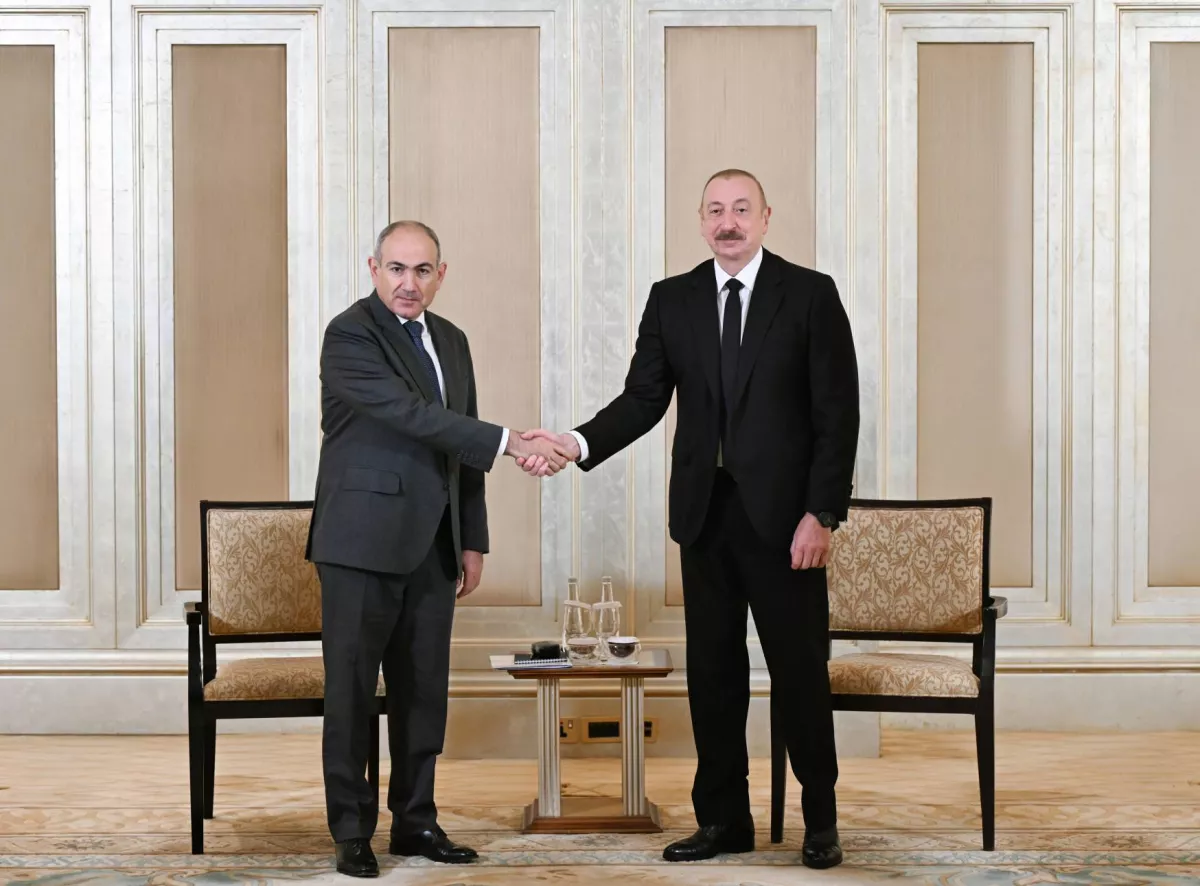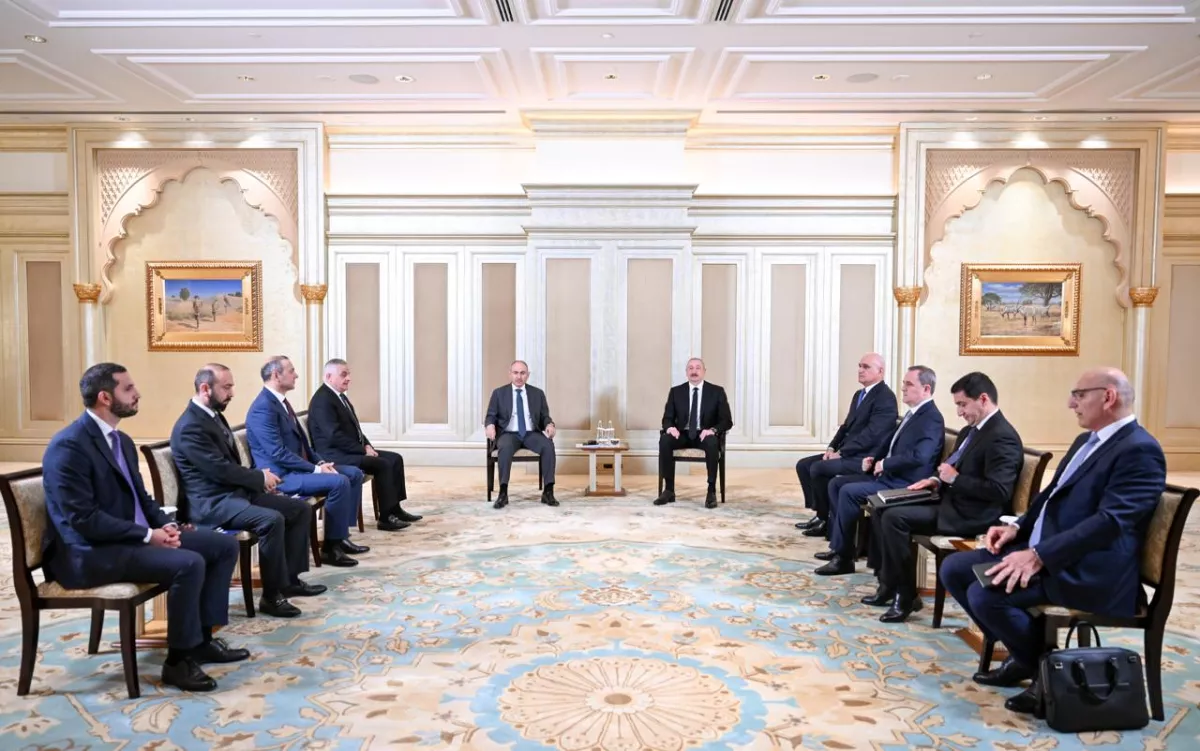Talks in Abu Dhabi: Baku and Yerevan compose their own peace symphony Fresh analysis
A meeting is taking place today in Abu Dhabi that can already be described as one of the most momentous in the modern history of the South Caucasus. The negotiations between Azerbaijani President Ilham Aliyev and Armenian Prime Minister Nikol Pashinyan are unfolding in an atmosphere where every detail is imbued with deep symbolism and political significance.
As a region long torn by conflict and mutual recriminations enters a new phase of rethinking its geopolitical role, the meeting in the United Arab Emirates stands as proof of how the very architecture of international diplomacy is being reshaped.
The choice of Abu Dhabi as the venue for the dialogue is no coincidence and reflects a broader trend towards seeking platforms free from the pressure of traditional power brokers and the shadow of old alliances. The UAE — a country that has built a reputation as a pragmatic and neutral actor in complex regional dynamics — is not acting as a mediator or participant in the negotiation process; it has merely provided the space for the meeting.
This decision, initiated by Azerbaijan, demonstrates Baku’s strategic restraint and its commitment to conducting the peace process strictly in a bilateral format. There is a philosophy behind this approach: to break away from the outdated models in which the fate of the region was decided behind closed doors with the involvement of third parties whose interests often ran counter to the aspirations of the peoples of the South Caucasus.

Azerbaijan and Armenia — two neighbours whose history is interwoven with bloody conflicts, but also with periods of coexistence — now stand before the opportunity to rewrite their future. This current stage of negotiations has become possible thanks to Baku’s consistent policy, in which peace is not an abstract goal but the logical outcome of a long-standing struggle for territorial integrity and sovereignty.
Azerbaijan’s achievements on the diplomatic front are as significant as its successes on the battlefield. It would not be an exaggeration to suggest that the concept of peace being discussed in the Abu Dhabi meeting room was conceived in Baku — and is increasingly being recognised in Yerevan as the only realistic path toward a final settlement.
The Zangezur Corridor — a transport artery whose opening could reshape the economic and geopolitical map of the region — is expected to hold a special place in the discussions. For Azerbaijan, this project is not merely an infrastructure initiative or a tool for integrating the South Caucasus into global trade routes, but a strategic land connection between the country’s mainland and the Nakhchivan Autonomous Republic. This lends it particular importance in the context of national security and regional stability.
However, beyond the walls of the negotiation hall, there are forces for whom a stable and prosperous South Caucasus would pose a challenge to their outdated strategies. These actors, unable to let go of illusions about the old order and the new realities on the ground, are making desperate attempts to derail the peace process by fuelling destructive narratives and provoking internal crises in Armenia.
The irony lies in the fact that the Armenian leadership — now engaged in negotiations with Baku — has itself become the target of such attacks, and fully understands that any collapse of the process could lead to even deeper political and economic isolation for the country.

The historical experience of the South Caucasus teaches a clear lesson: when a window of opportunity is left unused, it inevitably closes — often with a crash. That is precisely why the bilateral nature of these negotiations is so important. It deprives destructive external actors of the ability to obstruct the process and returns the fate of the region to those who actually live here.
Aliyev and Pashinyan — despite the stark differences in their political trajectories — are now seeking common ground not for the sake of abstract slogans, but for the benefit of their countries, in an era when the global order is collapsing faster than ever before.
Yes, the meeting in Abu Dhabi is not the signing of a peace agreement, but it marks an important milestone on the path toward one. It reflects a paradigm shift — away from mediation and patronage, and towards a mature dialogue between two states that must learn to live side by side. The peace treaty is still ahead, but the prospect of its conclusion is now more realistic than at any point in the past three decades.
If both sides manage to overcome resistance from external and internal opponents, the region may finally emerge from the shadow of its past and step into a space of new opportunities. Since history has too often punished the South Caucasus for its indecision and inability to reach agreement. The time has come when missing this opportunity would cost more than any compromise ever could.








